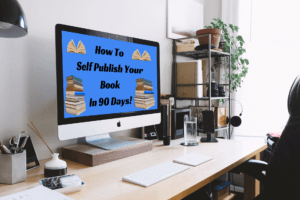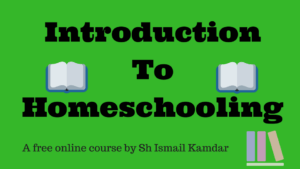 How To Set Up An Online Business On The Side
How To Set Up An Online Business On The Side
We may be living in the best time ever to start a small side business with very little capital. The inventions of the internet, social media, and online marketplaces have made the start-up costs and running costs of many businesses very low. This creates a unique opportunity for anybody interested in starting an online business on the side.
I started my first online business in 2015, which is this very website Islamic Self Help. Currently, I work two online jobs while running two online businesses. Both of which are very successful. Over the past few years, I have discovered many ways to build an online business which requires very little capital but produces a steady flow of profit.
In this article, I will share with you a few tips on getting started with your first online business.
1. Look at businesses with low costs
This includes businesses that offer digital products (like my eBook and online course business), or which provide services (like my freelance writing business). If you can find something you like which has low costs, you can set it up quickly, and start producing a profit even faster. Look into fields with low overhead, and high profit margins. These are the best fields to start your first online business in.
2. Get a website
For most online businesses, a website is necessary. A website gives you a base of operations. It allows you a place to list your products, interact with customers and be discovered by new customers. Decide on a name, buy the domain, and start setting up your website. This is were you will list your products or services, and operate from.
3. Gain a social media presence
Your social media presence is how people get to know you and your business. It is true that some people may discover you with a Google Search. And others may learn of you through word of mouth.
But in the modern era, social media is the fastest way to grow and gain new customers. Set up your social media pages, link them to your website and start growing your pages through beneficial content.
Quick tip: Focus on organic growth, and avoid buying social media followers.
4. Set business goals and work towards them
It isn’t enough to set up your website and social media page, and hope people will come. You need to work constantly at growing your business. Begin each month by setting your goals for the month, then dedicate an hour or two a day to work towards these goals.
The goals could be launching a new product, gaining a certain number of leads, hitting a sales quota or putting out beneficial content. Set your goals and work towards them. For most online businesses, you just need an hour a day to make it work.
5. Invest in your own mind
Since 2013, I have invested thousands of dollars into studying entrepreneurship, online business, marketing, sales, and many other skills that were necessary to grow my business. If you want to succeed in the online marketplace, then you need to start with investing in yourself. In our online course department, we offer a variety of online courses that can assist you in gaining the necessary skills to succeed online.
6. Don’t give up
Online businesses may be cheap to set up and get rolling. But they take time and effort to grow into something truly great. Do not give up. You will have good months and bad months. Focus on learning, experimenting, growing, and gradual progress. After a few years, you will find yourself enjoying a much higher quality of life thanks to your online business.
Summary of Tips:
- Choose a business with low overhead
- Set up your website
- Grow your social media presence
- Work towards monthly business goals
- Invest in your own education
- Never give up
If you want to learn more about setting up an online business,
Join our online course on self-publishing.
The course is available at a ridiculously steep discount if you use this link.
You see there!







